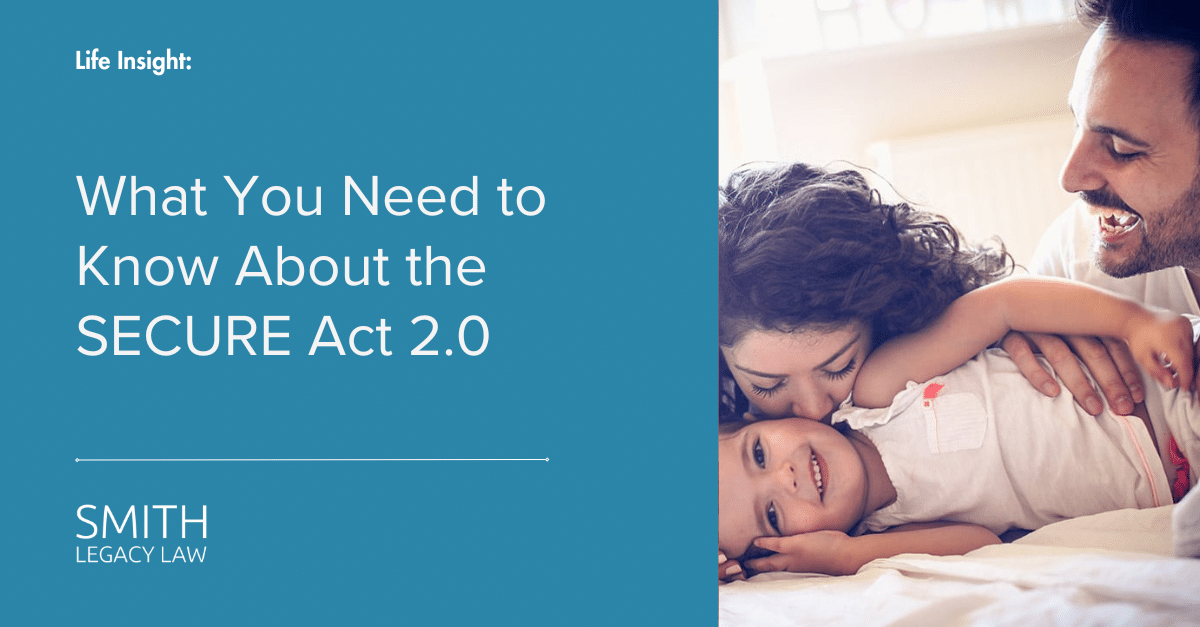At the end of 2022, the SECURE Act 2.0 was signed into law. The Act makes changes to both individual and employer retirement savings plan rules with the goal of encouraging workers to save more for retirement. The Act also allows retirees to potentially reduce or delay their taxes when withdrawing funds from retirement accounts. While the law addresses a long list of tax provisions, there are several key takeaways that individuals and employers need to know about the SECURE Act 2.0.
Required Minimum Distributions (RMDs)
The age at which individuals must begin taking RMDs from retirement accounts has been raised to 73 starting this year and will go to 75 in 2033. Those who turned 72 in 2022 or earlier must continue taking RMDs as scheduled. Further, beginning in 2024, there is no RMD for Roth accounts in employer retirement plans.
Penalties for Failing to Take an RMD
If an individual fails to take an RMD, the penalty has been reduced to 25% of the RMD amount from 50% previously. At the discretion of the IRS, the penalty may be reduced to 10% if the individual subsequently withdraws the RMD and amends his or her tax return in a timely manner.
Catch-Up Contributions
Individuals between the ages of 60 and 63 will be able to contribute up to $10,000 yearly in additional money to 401(k) and 403(b) plans beginning in 2025. Thereafter, the catch-up will be indexed to inflation. The IRA catch-up for those 50 and over will be indexed to inflation starting in 2024. However, those earning more than $145,000 (adjusted annually for inflation) must make catch-up contributions after age 50 to a Roth account in after-tax dollars. Individuals earning $145,000 or less are exempt from the Roth requirement.
529 Rollovers
Beginning in 2024, a 529 plan may be rolled over into a Roth IRA provided that the 529 plan has been maintained for at least 15 years, the Roth IRA account is in the name of the 529 plan beneficiary, and other requirements have been met. Further, the rollover is subject to annual and lifetime Roth contribution limits.
Student Loan Matching By Employers
Many workers do not save for retirement because they are paying off student loans and, therefore, miss out on their employer’s match for retirement plan contributions. Starting in 2024, employers can elect to “match” employees’ student loan payments with matching payments to the employer’s retirement plan.
Qualified Charitable Distributions (QCDs)
Before the latest changes, individuals aged 70 ½ or older could use a QCD to satisfy their RMD for the year up to $100,000. A QCD is a direct transfer from an IRA to a qualified charity. The SECURE Act 2.0 now also allows a one-time gift of up to $50,000 (adjusted annually for inflation) to a charitable remainder unitrust, a charitable remainder annuity trust, or a charitable gift annuity. The $100,000 annual QCD limit will also be adjusted for inflation beginning in 2024.
Other Changes to Tax Laws in the SECURE Act 2.0
These are just a few of the provisions in the SECURE Act 2.0. Accordingly, it is recommended that individuals and employers consult a tax attorney regarding how the Act may impact their finances. Our attorneys have extensive experience advising clients about tax laws, including strategies to reduce taxes and maximize income.
Contact us for a comprehensive review of your tax and financial planning needs.
